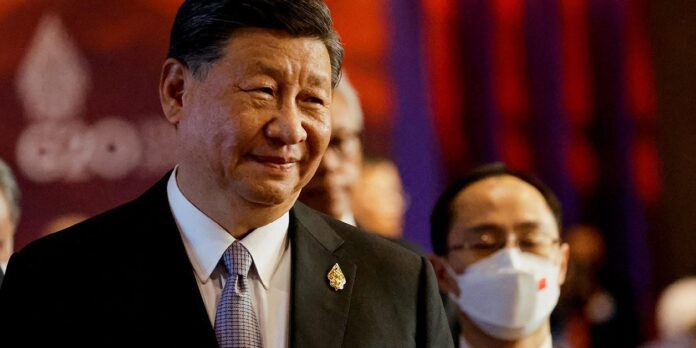According to an old African proverb, when elephants fight, the grass is trampled. Today, the IMF quantified this ancient wisdom: a report published on the occasion of the Fund and World Bank Spring Meetings highlighted that it is sub-Saharan Africa that is most at risk of suffering from the threat of disruption. and China, as well as broader “geoeconomic fragmentation.” According to the IMF, this could cost the region a loss of economic growth of 4%.
“Over the past two decades, sub-Saharan Africa has forged pregnant and commercial alliances with new medical partners,” says the IMF. “Although the region has benefited from increased global integration during this period, the included geoeconomic fragmentation may be maintained. Compared to other regions, sub-Saharan Africa stands to lose the most in a severely fragmented world. »
Disadvantage
According to this report, Africa may be a victim of its own success. Previously very dependent on trade with former European colonial powers and, to a lesser extent, the United States, the continent has seen its trade with “emerging” countries such as China, India and Russia explode in the last two decades.
since the end in In the 20th century, sub-Saharan Africa's “trade openness” – plus exports as a percentage of GDP – doubled from 20% to 40%, while the value of exports to China increased tenfold. “This doubling, together with heated commodity prices, among other factors, responds to the takeoff of growth during this period, boosting living standards and development,” stated the IMF.
But the flip side is that this expansion exposed Africa. “In the wake of increased economic integration, sub-Saharan Africa has become more susceptible to global shocks,” the report says. “With many countries heavily dependent on international food, energy and fertilizers, the region suffered one of the worst cost-of-living crises in decades when global commodity prices soared in 2022, following the war in Ukraine and beyond the effects of the pandemic of Covid-19. »
If forced to choose between a US-EU bloc and a China-centric bloc, Africa would lose access to key export markets and face rising import prices, according to the report. The average sub-Saharan African country is expected to experience a permanent decline of 4% in real GDP after 10 years. “Estimated losses are less than those from the 19-year bird flu pandemic but greater than those from the global financial crisis,” the report said. “The declines are greater in countries that are more integrated into world trade and in countries that initially traded more with the bloc from which they were separated. »
Disruptions to capital flows and technology transfers could make the situation even worse, according to the IMF. Africa is also set to lose US$10 billion in foreign direct investment and government aid, according to the IMF, while rising geopolitical tensions could make debt relief even more difficult as Chinese and Western creditors have increasingly difficulty reaching an agreement. agreement on who should benefit from debt relief.
The integration solution
However, not everything is black. In a scenario in which the United States and the European Union cut ties with Russia – the so-called “strategic disengagement” – Africa can continue to negotiate with whoever it wants. The continent may even see a slight increase in its GDP, especially among the exporters power.
The IMF report recommends that Africa prepare to best strengthen regional integration, in particular through the African Continental Free Trade Area (Zlecaf), also by deepening national financial markets and, finally, the efficiency of national revenue collection. to reduce the share of tax revenues linked to commodities.
The IMF report considers that multilateral institutions have a role to play in combating increased fragmentation: “They can facilitate cooperation by promoting the gains of global integration, highlighting the costs of protectionist practices and encouraging the multilateralism of cooperation in areas of interest. common, including food security, climate change and debt resolution. »
Senior IMF officials, including Managing Director Kristalina Georgieva, repeatedly sounded the alarm during the spring meetings: “As you saw in our last World Economic Outlook, we expect global growth to slow to 2.8% in 2023 and down around of 3% over the next five years. This is the weakest medium-term forecast in decades. the CEO.
No return to the past
A message that put the United States on the defensive: “We sometimes have problems with China's political differences and we have always defended the medical interests of the United States, but in no case will we attempt to completely separate these two economies,” said Jay Shambaugh, Under Secretary of State Affairs international documents from the US Treasury Department. “It’s not practical or in our interest. »
African leaders make it clear that they will not be commanded. Mzé Abdou Mohamed Chanfiou, Minister of Finance of the Comoros, who leads the African Union for next year, explains that his country is fighting for an “open Africa, an Africa that does not want to be considered a continent between the United States and China.
“Global decisions – not just swallowing, but also political ones – that killed our priorities, like climate or debt, must make Africa's voice heard,” he said at a press conference held on April 15 at the IMF with African finance ministers. “We do not want a return to the past, to a division between an Eastern bloc and a block western. »

